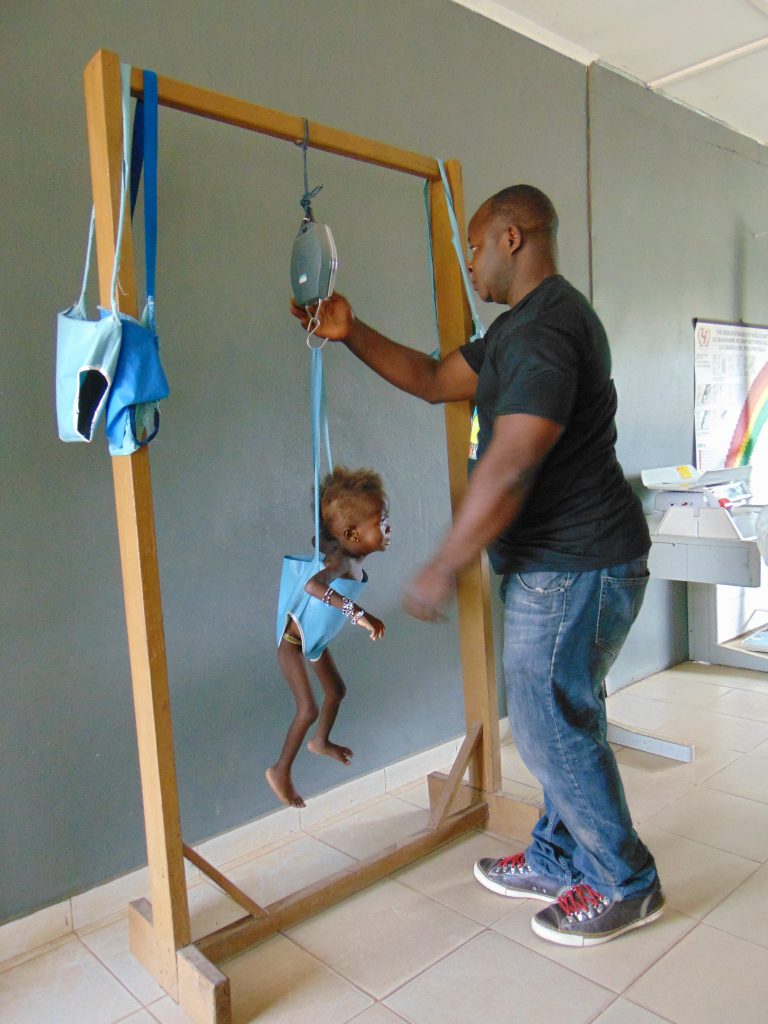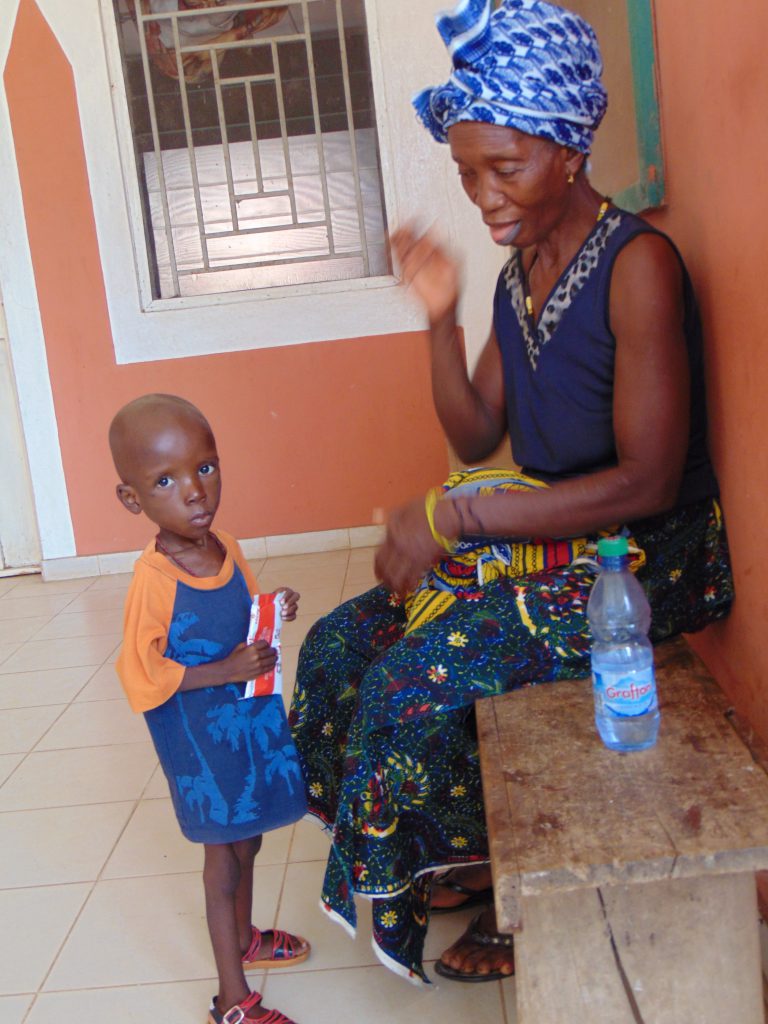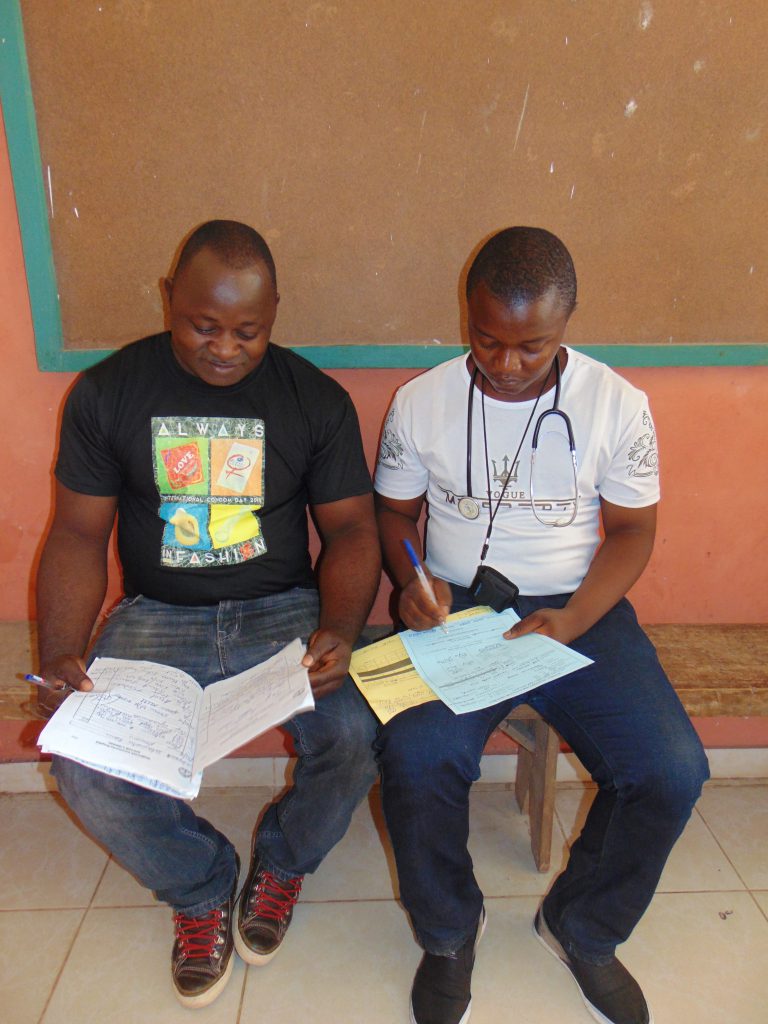Over the past 2 weeks the Under-Fives clinic at Magbenteh Community Hospital has received 3 cases of acute and chronic malnutrition.
Cases of malnutrition received at Mabenteh Community Hospital are usually admitted to the Children’s Ward or referred to the Government Hospital depending on their severity. Despite these 3 children being diagnosed as having both acute and chronic malnutrition, it was not safe to move them due to time and distance to the other health facility.
One of these admissions includes a 4-year-old boy called Hassan weighing just 6kg. Hassan comes from a remote village between the two towns of Makeni and Lunsar. His parents passed away 2 years ago, leaving his grandmother to care for him and his 4 siblings. Hassan was tested positive for both HIV and TB. Unable to walk alone, suffering from severe anaemia and with a MUAC (Middle Upper Arm Circumference) of 9, he was in a critical condition.
Thankfully in January, Magbenteh Community Hospital was blessed with a small donation of therapeutic milk and plumpy nut from the District Nutritionist from the Food and Nutrition Department for the Ministry of Health and Sanitation. The nurses were able to provide Hassan with milk (F75 followed by (F100) for 6 days (inserted through a tube as he was unable to eat for himself). This feeding phase was shadowed by plumpy nut for 4 days. On day 9 Hassan started asking his grandmother for rice, a sure sign that his appetite is increasing. Now the next challenge is to ensure Hassan has a healthy and sustainable future, with regular access to treatment against HIV and TB.
Malnutrition rates in Sierra Leone are among some of the highest in the world. According to the World Health Organisation, 45% of child deaths are related to malnutrition.
Food insecurity remains a major problem in Sierra Leone with one out of two households being food insecure[1]. This is not only the combined impact of the Civil War and the Ebola epidemic, but also the country’s deprived access to water and sanitation services, low agricultural productivity and income opportunities. As a result, one in seven children in Sierra Leone dies before reaching their fifth birthday[2].
Cases like Hassan’s are common in Sierra Leone. Although Hassan is now receiving treatment, his Grandmother’s rice plantation has been left without gardening and his siblings are having to be looked after by a neighbour. The long term consequences of malnutrition affect not only the child but the whole family and their income.
Magbenteh Community Hospital established a Stabilization Centre in 2012 which served the communities of Bombali District until the Ebola epidemic in 2014. The Centre provided nutritional supplementation and rehabilitation for malnourished children within Bombali District. Sadly, all staff members who had previously worked in the Stabilization Centre died from Ebola whilst treating and containing the virus.
The rise of malnourished children arriving Magbenteh Community Hospital over the past few weeks is extremely worrying, especially in regards to the side affects of malaria and anaemia. There is an evident need to reopen the centre officially as soon as possible, but funding must be secured first to purchase food supplements and drugs.
Magbenteh Community Hospital wants to support not only the communities of Bombali District and the future of Sierra Leone’s children, but also the Sustainable Development Goals. In order to reopen our Stabilization Centre, SSLDF needs to secure funds for the provision of treating 600 children per year with drugs and food supplements.
If you would like to donate and support children like Hassan donate here.
[1] Profile on Nutrition in Sierra Leone Report: European Commission: July 2017
[2] Profile on Nutrition in Sierra Leone Report: European Commission: July 2017




